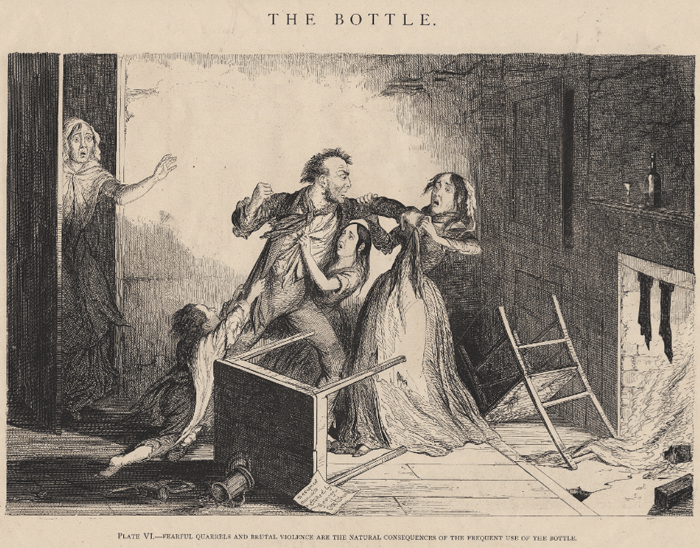A recent headline on another Patheos blog caught my eye: How the Left Gave Us Toxic Masculinity. The author, Gene Veith, explains as follows:
Complaints about “toxic masculinity” often come across as complaints about “masculinity.” The Gillette ad on the subject shows leering men committing sexual harassment, bullies tormenting those smaller than themselves, and otherwise being obnoxious. But such behavior was always scorned by men of honor.
This opening made me wonder about the affiliations and background of the author. According to his blog’s about page, Veith is a former professor at Patrick Henry College who now teaches at a seminary in Indiana.
I have questions. Namely, questions about Doug Phillips and Bill Gothard and all of the other evangelical pastors and Christian homeschool leaders and ministries who have landed in scandal for sexually abusing women and girls. These are all men who were (or are) in Veith’s circles. Would Veith argue that these men were not men of “honor”? If so, how is one to tell the difference? These men put on all the appearance of being good, godly men—until the truth came out.
I bring all of this up because of where Veith goes next:
But there is such a thing as men behaving badly. And this often happens when young boys grow up with no father or father figure to show them how to be a man. A substantial amount of research has shown that boys who grow up without a father often develop “hypermasculine” traits–that is, extreme physical and sexual aggression. They get in fights and sometimes commit violent crimes. They tend to be misogynistic towards women while also being promiscuous. Girls raised without a father often become “hyperfeminine,” becoming sexually promiscuous and usually getting pregnant at a young age, generally from one of those hypermasculine men who never stay around to be fathers to their children, much less husbands.
That is Veith’s argument—that men commit violence against women because they never had a father or a father figure to show them how to be a man. Look, I’m sorry, but Doug Phillips had a father. His father had very high profile in conservative politics, actually. He hit all Veith’s benchmarks. Bill Gothard had a father too. So did countless other men in Veith’s circles who have abused and mistreated the women around them.
Yet Veith never even addresses the abuse and toxicity in his own circles. He acts like it doesn’t exist. Instead, we get statements like this:
Traditionally, marriage civilized men by channeling their sexual desires into a loving relationship and parenthood. And it channeled their aggressiveness into protecting their family and working hard to provide for them. The fathers, in turn, taught their sons how to treat women and how to discipline themselves so they could grow up into effective adults.
Say what now?
Doug Phillips was married. So were most of the men in Veith’s circles who have been outed in recent years for sexual abuse and violence against women—do I really have to say this again? Marriage didn’t stop Phillips from grooming and sexually abusing his children’s nanny. Has Veith never heard of spousal abuse, or marital rape? Does Veith truly think marriage prevents men from committing violence against women? I have news for him: It doesn’t.
Before I offer a more in-depth response, let me give you one last paragraph from Veith:
Who was responsible for mocking these “1950s” families and for encouraging young people to rebel against it? Today marriage has all but disappeared in the poor working class of all races and single mothers are raising their children with no father in sight. But middle class and wealthy families too are torn by divorce and family dysfunction. And the Sixties, with the sexual revolution and the counter culture, threw out all restraints on principle. A consequence of all of this is both the despair among young people (listen to their music) and “toxic masculinity.”
Veith’s central argument is that violence against women is a product of two related factors: declining marriage rates and boys being raised without fathers. He dates both of these things as originating in the 1960s.
There was, it would seem, no violence against women before the 1960s. This is, of course, balderdash—especially when you consider that “toxic masculinity” does not refer only to sexual assault or spousal battery. It also refers to sexual harassment in the workplace; dismissal of women’s opinions; the belief that men cannot show pain or vulnerability; the idea that men must show intellectual, sexual, and physical dominance; the equating of the emotional with the feminine and the rejection of the feminine in men. These are all areas where we have improved since the 1960s.
In many cases, our awareness of a social problem emerges only when there is finally public will to challenge it. Before this, social problems are normalized. They are seen as simply a part of life, and are talked about in whispers. This was once the case with violence against women. It was the case, too, with police brutality against black people—this problem did not emerge with the birth of the Black Lives Matter movement. So, too, child abuse did not begin when public awareness led to the development of social systems to fight it. Rape on college campus did not start a decade ago, when a concerted movement arose to fight it. Our awareness of toxic masculinity did not signal its emergence.
Of course, violence against less women was less unknown in the past than Veith’s claims might suggest. In the U.S. over a century ago, people were already well aware that domestic battery was a problem. Social reformers of the time tied violence against women (and children) not to fatherlessness, or a failure to marry, but to alcohol use.
This image is from 1847:

It would seem that toxic masculinity is not an invention that stemmed out of the 1960s—especially considering that it includes dismissal of women’s opinions and the idea that men should not show emotion or vulnerability.
I would be remiss if I did not examine the citation Veith included when he made his claim that “research has shown” boys that grow up without a father are prone to “extreme physical and sexual aggression” and “tend to be misogynistic towards women while also being promiscuous.” What evidence was used to make this claim? I opened the linked article and read it. This is not a data-heavy research article. It’s a conceptual article that begins by citing research conducted by others before moving on to conjecture and thought experiment.
The article’s author, Belinda Brown, begins by citing negative outcomes for boys from single-parent homes. She next argues that men have more tenuous connection to the family than women, due to their inability to become pregnant or lactate. She then argues that more attention needs to be paid to consciously creating a role for men in the family. Brown describes a number of pre-industrial practices for raising boys: aggressively separating boys from the feminine; conducting all-male rituals; and creating rituals that imitate the female reproductive process.
Brown argues that without the sorts of male coming of age rituals and all-male environments of the pre-industrial period, boys who grow up with single mothers are left to define the masculine by rejecting the feminine.
As father absent boys are the ones most likely to engage in the negative behaviour associated with ‘toxic masculinity’, this suggests that it is not masculinity which causes the bad behaviour but its absence. Where boys are more feminine and perceive themselves to be so they are more likely to behave badly. This suggests that the surest route away from toxic masculinity would be to encourage boys to develop their masculinity and enable them to find ways of being men. However, this is exactly what the current obsession with toxic masculinity prevents. Those who ‘call out’ toxic masculinity are inadvertently the creators of it.
Yet even as she makes these claims, Brown never cites any any studies linking fatherlessness to increases in sexual aggression or disrespect toward women. In her section on the problems associated with fatherlessness, Brown only cites studies on educational attainment, labor market outcomes, mortality, and delinquency. Veith, remember, cited Brown’s study as research showing that growing up without a father makes a boy sexually aggressive and misogynistic. Brown never cites research saying anything of the sort.
This shouldn’t be surprising. Toxic masculinity existed in spades when marriage was the norm and aberration from it was stigmatized; in a similar manner, toxic masculinity today is not limited to those raised in single family homes.
Let’s take a step back and look at the bigger picture: In his article, Veith acknowledges that toxic masculinity is a thing, and that it is a problem. He wants to make marriage and the eschewing of divorce the solution, of course, and he does not appear to understand what toxic masculinity actually is. Still, the concept of toxic masculinity has made inroads wide enough that Veith feels the need to respond. And that is worth noting.
[For those who may be curious: Brown was a professor in the University College London’s Centre for Transport Studies, where she wrote about the impact of city layout on children’s physical mobility, as well as children’s walking patterns and ways to decrease car use. After retiring due to family issues, she began writing articles with titles like The Internal Contradictions of Feminism for conservative publications. Finally, while the article Veith cites was written after Brown left the University College London, her university affiliation is still listed on the paper.]
I have a Patreon! Please support my writing!















